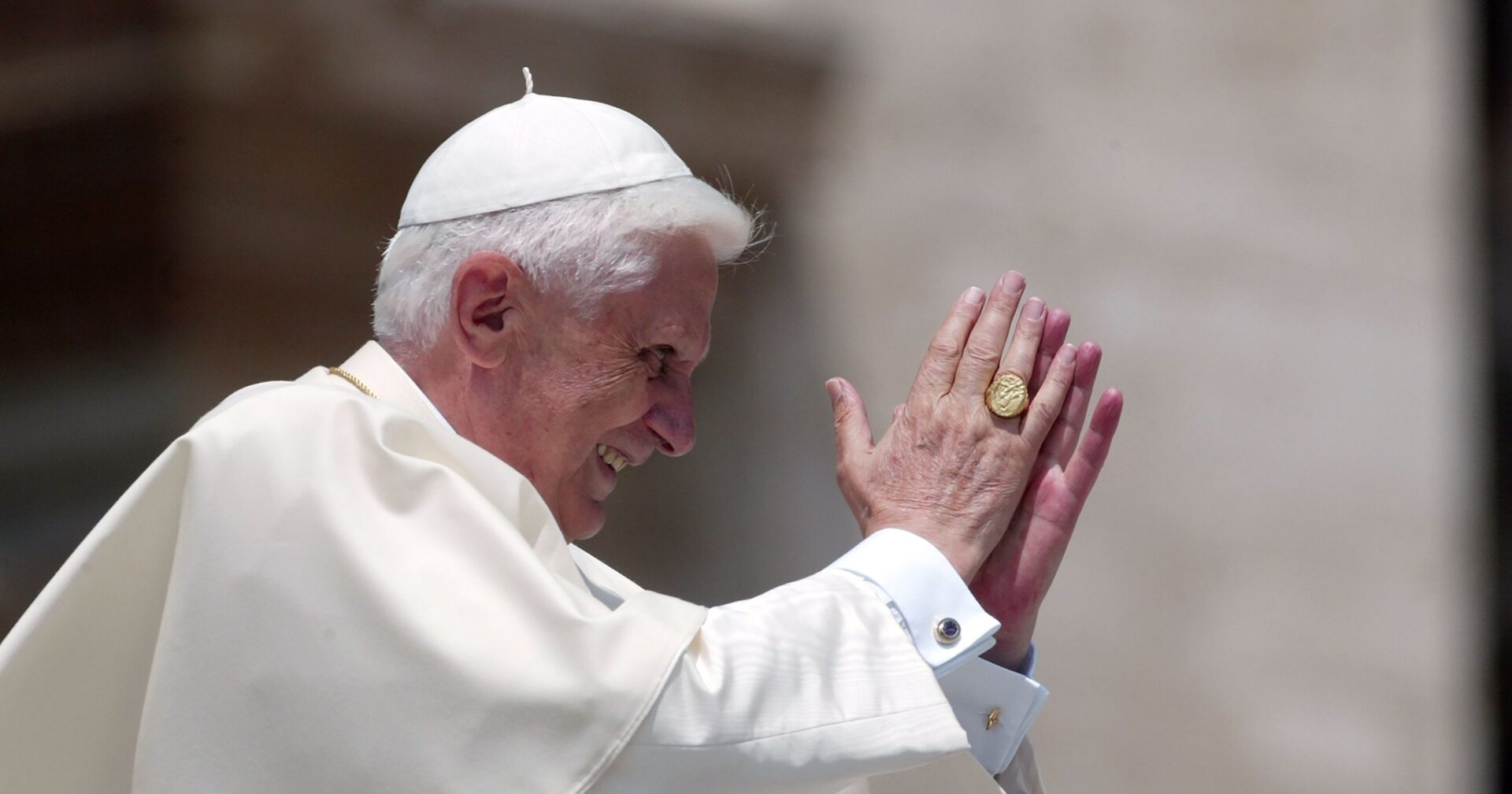When Martin Luther published his infamous 95 Theses, his newly spawned Protestant Revolt was condemned as heretical. Over 500 years later, is Protestantism (still) a heresy? Here’s what the Holy Father Pope Emeritus Benedict XVI had to say.
In 1960, a virtually unknown professor of theology wrote The Meaning of Christian Brotherhood. That professor was a young Joseph Ratzinger, penning a treatise that argued a true Christian brotherhood exists between all believers in the one Christ and the Trinity.
In his book, he addressed Protestantism in the context of that Christian brotherhood, and whether it is still a heresy – saying the “old category is no longer of any value.”
“There is no appropriate category in Catholic thought for the phenomenon of Protestantism today (one could say the same of the relationship to the separated churches of the East).”
Instead, he concluded that Protestantism exists in a theological category of its own, not a heresy, but something else that has not been determined.
“Protestantism today is something different from heresy in the traditional sense, a phenomenon whose true theological place has not yet been determined.”
Read the full excerpt from the The Meaning of Christian Brotherhood written by Pope Emeritus Benedict XVI on the state of Protestantism today below:
“There is no appropriate category in Catholic thought for the phenomenon of Protestantism today (one could say the same of the relationship to the separated churches of the East). It is obvious that the old category of ‘heresy’ is no longer of any value. Heresy, for Scripture and the early Church, includes the idea of a personal decision against the unity of the Church, and heresy’s characteristic is pertinacia, the obstinacy of him who persists in his own private way. This, however, cannot be regarded as an appropriate description of the spiritual situation of the Protestant Christian. In the course of a now centuries-old history, Protestantism has made an important contribution to the realization of Christian faith, fulfilling a positive function in the development of the Christian message and, above all, often giving rise to a sincere and profound faith in the individual non-Catholic Christian, whose separation from the Catholic affirmation has nothing to do with the pertinacia characteristic of heresy. Perhaps we may here invert a saying of St. Augustine’s: that an old schism becomes a heresy. The very passage of time alters the character of a division, so that an old division is something essentially different from a new one. Something that was once rightly condemned as heresy cannot later simply become true, but it can gradually develop its own positive ecclesial nature, with which the individual is presented as his church and in which he lives as a believer, not as a heretic. This organization of one group, however, ultimately has an effect on the whole. The conclusion is inescapable, then: Protestantism today is something different from heresy in the traditional sense, a phenomenon whose true theological place has not yet been determined.”
Editorial credit: Marco Iacobucci Epp / Shutterstock.com


















Protestants are heretics, plain and simple. They’re being taught things that completely contradict the pillar and ground of truth…the Catholic church.
FYI heresy is teaching that Jesus is someone entirely different than who he is. Not being a member of a different church. Catholics were really angry with Protestants back in the day to all them heretics because they were hurting the money bags for the new church. That’s all it was about. Nothing more, nothing less. If Luther was so wrong in his demands for change, the Catholic Chirch wouldn’t have made the changes after the schism happened
🤦♂️ I guess you are smarter than leaders of the Catholic Church 🤷♂️
You mean those morally (read: immorally) compromised prelates who promote false ecumenism, and violations of the Ten Commandments, most notably the 6th and 9th? Well then, I guess he/she is smarter than they are!
Protestants are heretics, it’s a declared heresy, in fact, and all the false ecumenical liberals and modernists teaching otherwise will burn in Hell with them. So will all the American “Catholics” who support leftist baby murderers and religious pluralism.